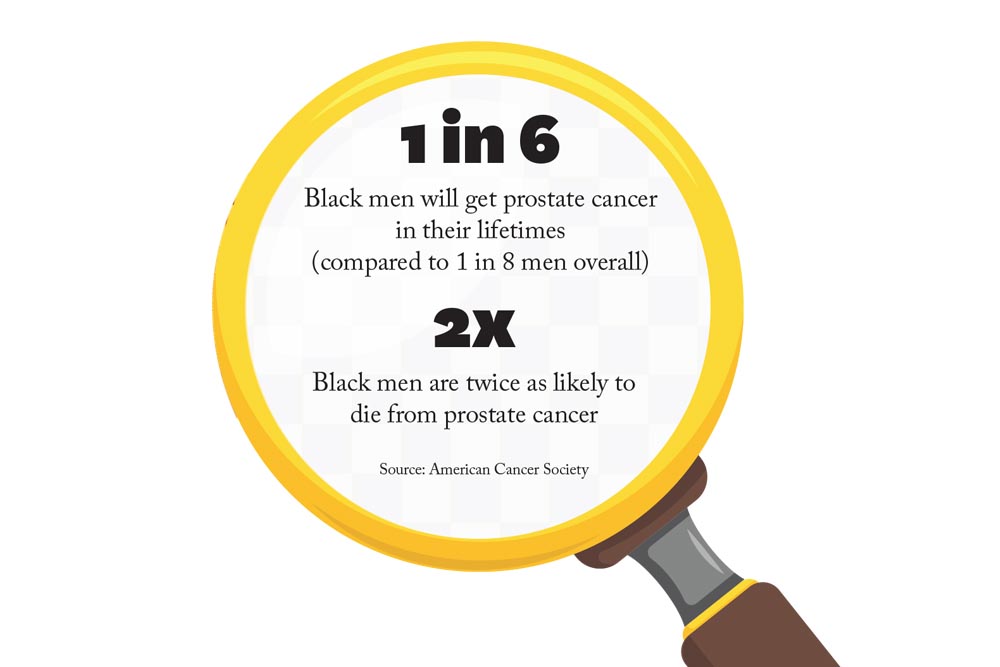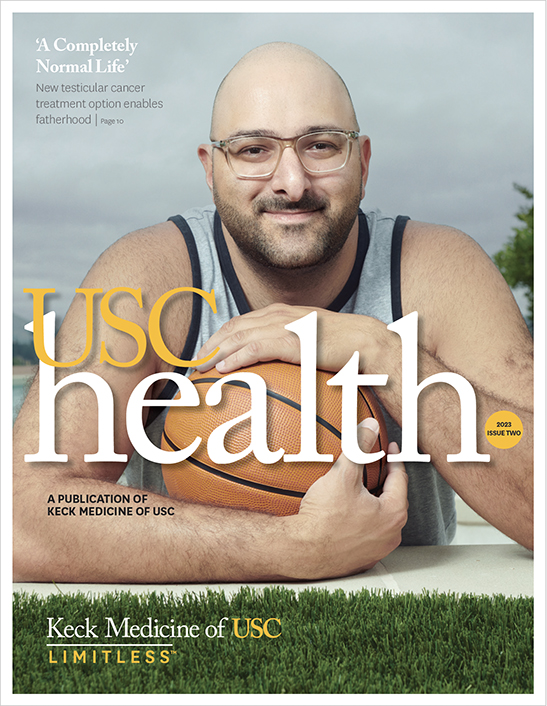
New research from the Keck School of Medicine of USC has identified nine new genetic risks factors — seven of which are found either largely or exclusively in men of African ancestry.
Prostate cancer takes its greatest toll on Black men.
Past studies have identified nearly 270 genetic variants linked to prostate cancer risk, but researchers have yet to determine why men of African ancestry are affected more often — or which men are more likely to develop aggressive forms of the disease.
Now, the largest-ever study of prostate cancer in men of African descent is addressing those questions.
A meta-analysis led by researchers at the Keck School of Medicine of USC has identified nine new genetic risk factors for prostate cancer — seven of which are found either largely or exclusively in men of African ancestry.
And, for the first time, Keck School researchers found that genetic differences can help determine which men are most likely to develop aggressive prostate cancer.

“The ability to differentiate between the risk for aggressive and nonaggressive forms of the disease is of critical importance,” says Christopher Haiman, ScD, AFLAC Chair in Cancer Research at the USC Norris Comprehensive Cancer Center and senior author of the study, published in European Urology. “Until now, risk scores haven’t been able to do that.”
Polygenic risk scores assess a person’s risk for a condition based on the combined influence of multiple genetic factors. Using new data to adjust these scores for men of African descent could help identify high-risk patients, prompting earlier and more frequent screenings, Haiman says.
“Prostate cancer survival is significantly lower among men diagnosed with aggressive disease,” says Fei Chen, PhD, an assistant professor of clinical population and public health sciences at the Keck School and the study’s first author.
The newly identified variants underscore the importance of including diverse populations in large-scale genetic studies, Dr. Chen says.
And the findings can be incorporated into genetic tests for patients, says Haiman, who also co-leads the USC Norris Cancer Epidemiology Program and directs the Center for Genetic Epidemiology at the Keck School.
Topics


